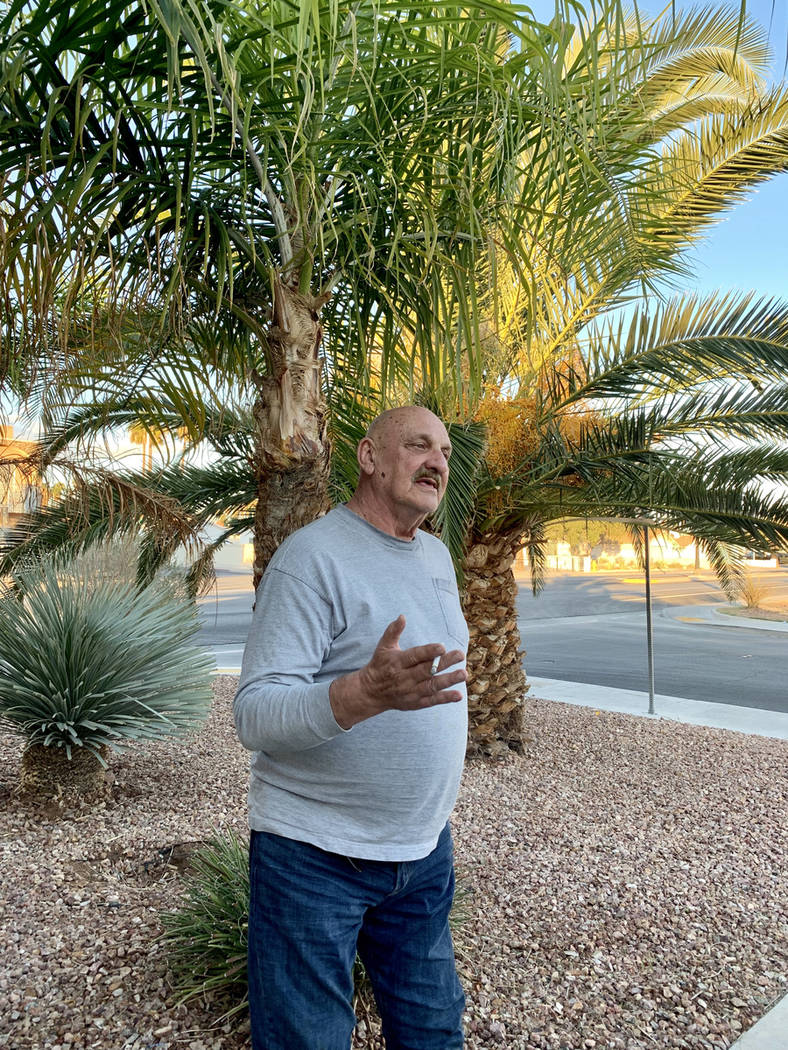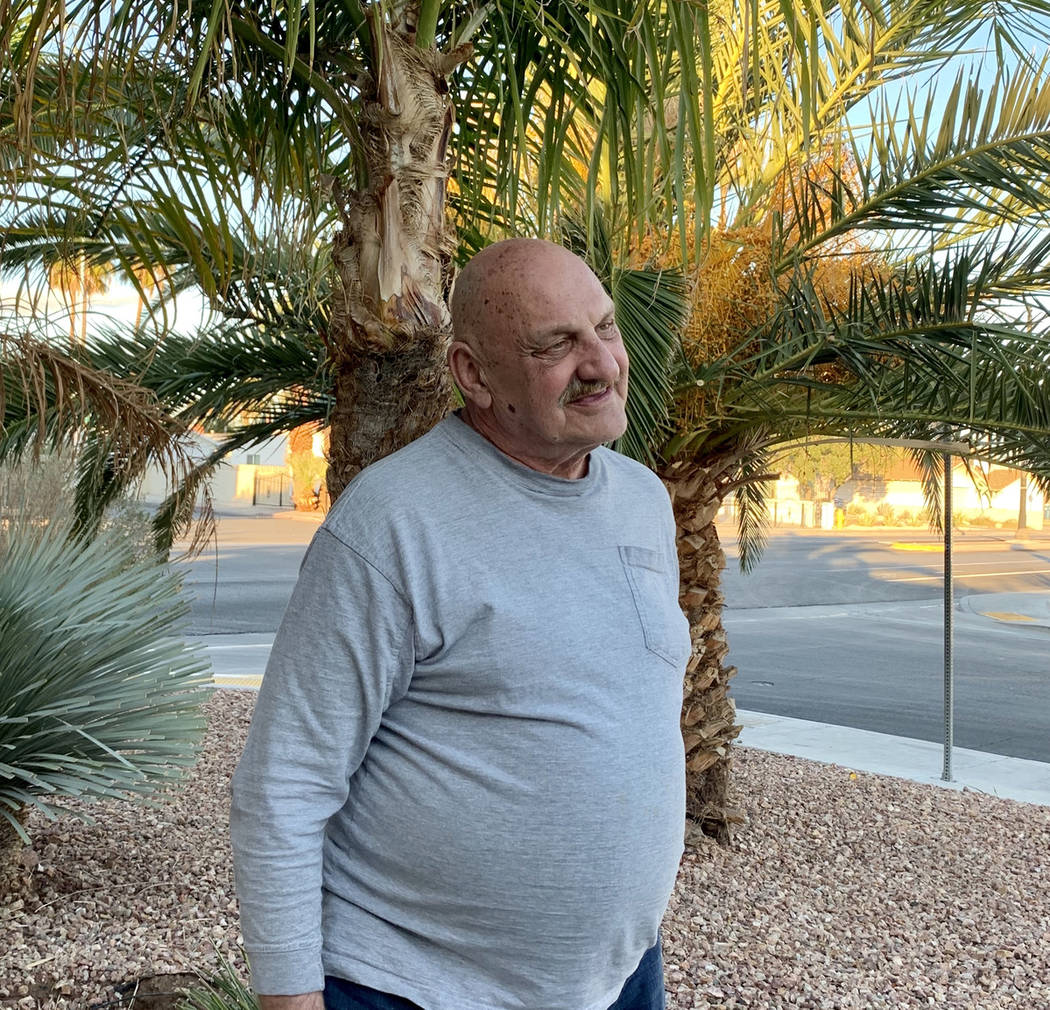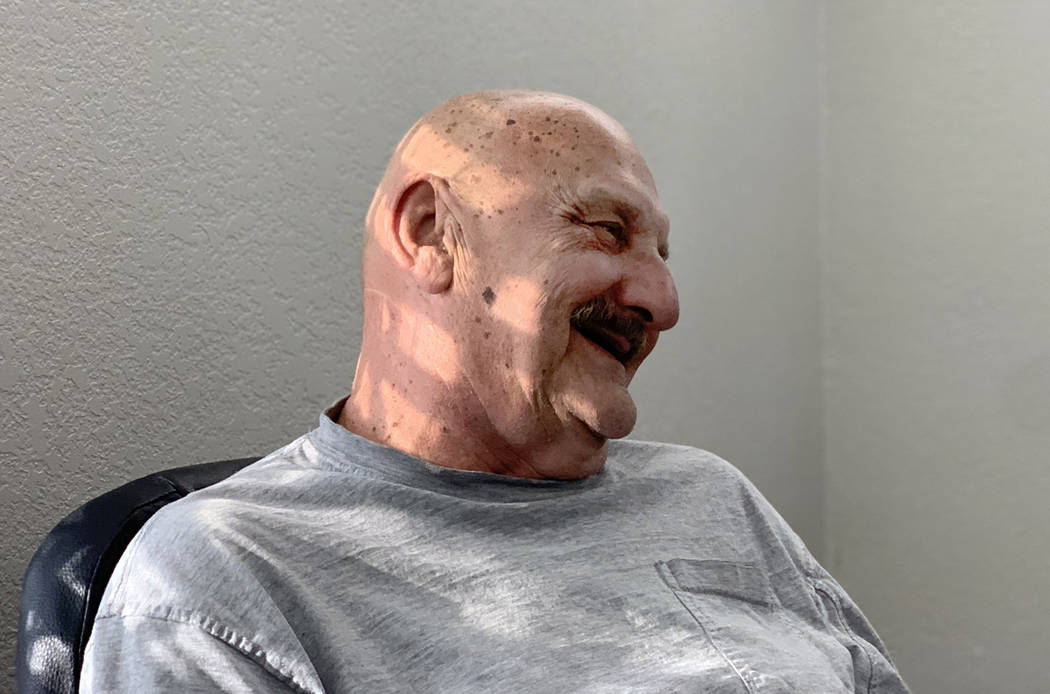Former inmate now advocates for prisoners in Nevada
John Witherow said that after his first prison sentence in 1967, it didn’t take long for him to become a mean, dangerous man. Over the next 40 years, only three were spent on the outside.
By the time he was sentenced in Nevada, there was no hope for Witherow — he was in for life. It took a state Supreme Court ruling, his self-taught skills as a jailhouse lawyer and a sizable settlement from the Nevada Department of Corrections for Witherow to get out of prison and change his life.
“I just learned to fight in a different manner,” he said during an interview in November.
Now 70, Witherow has been on the outside for more than nine years. A self-admitted former “problem child,” who said his most serious conviction was attempted murder for shooting at an officer, now runs Nevada’s chapter of the nonprofit Citizen’s United for Rehabilitation of Errants, also called CURE.
“Prisoners in Nevada never had a group on the outside that communicated with them on a regular basis about what’s going on or who they can call for assistance: We provide that service,” he said.
Witherow took over the Nevada chapter of the prisoner advocacy organization within a year of being released on parole in Nevada. The former prisoner — who spent time incarcerated in Michigan, California and Nevada — now answers dozens of inmate letters a week, works with attorneys to file class-action lawsuits and meets with the highest-up in Nevada’s Department of Corrections.
James Dzurenda, former director of the department, who resigned in August, said Witherow helped him address problems in the prison system.
“John was a great tool for that because the inmate population trusts him, and if John said to trust me, they would do it,” Dzurenda said during a phone call in December. “It was such a big deal to have him working together with us.”
Dzurenda said Witherow was an important person to him during his time as director because he knew what was happening in the facilities.
“John’s like the filter for that. He never came to me with any minor stuff,” Dzurenda said. “He made sure that if he’s bringing it to my level, he’s bringing me the stuff that he really believes is a serious issue.”
Connection to the outside
Witherow was matter-of-fact about everything from the problems with the criminal justice system to his own checkered past during an interview at a central valley law firm.
All of the chapter’s mail goes through the law office, and Witherow said he and his volunteers work hard to try and answer every inmate.
He said he also distributes a newsletter every two months to Nevada’s seven major prison facilities. The newsletter contains copies of criminal justice news articles, list of resources for inmates and the occasional plea from Witherow for prisoners to call him with information.
The newsletter networking is how Witherow gathered nearly 100 cases of inmates who say they are not receiving proper medication for their chronic hepatitis C. He gathered two strong cases and helped file a class action lawsuit against the state prison system in October, making Nevada the latest state to face a lawsuit on the issue.
But more importantly, the newsletter lets inmates feel connected to outside.
“They’ve got somebody that will answer their questions and somebody who will help them,” Witherow said about the inmates he talks with. “Somebody who they can call and find out what’s going on.”
‘You judge people by their conduct’
Witherow said his history includes armed robbery, weapons charges, and attempted murder of a police officer, which happened while he was trying to make off with a suitcase of cash during an armed robbery.
He fired toward an officer who cut off his getaway car, he said. It was 1974.
He was convicted on an armed robbery charge in Nevada after robbing a jewelry store and got a habitual criminal enhancement tacked on to his sentence because of his prior felonies. He was sentenced to life in prison without parole, which was later overturned by the state Supreme Court, and he was resentenced to life with the possibility of parole, he said.
He was released after 26 years, and if all goes according to plan, his parole will be up in 2020, he said.
Witherow said he doesn’t hide his record. He said that without being asked, he told his neighbor of his multiple prison sentences. The man was glad he heard it from Witherow.
“I would rather tell somebody about me then have somebody else tell them about me,” Witherow said. “I think you judge people by their conduct.”
In prison at 17
Witherow grew up with four siblings in the suburbs of Detroit. Witherow said his father abused him — “He beat me until I could beat him.”
He hung out with kids whose fathers and brothers were “gang-bangers” and began stealing cars at 14. His first run-in with the cops when he was a juvenile was for stealing a 1966 Mustang, he said.
Going to prison at 17 just made his mental health problems worse, Witherow said.
“I was an emotionally disturbed young man,” he said. “I should have had some type of mental health treatment.”
Witherow was incarcerated in Michigan during the 1971 Attica Prison riot in New York. At the time, Witherow said he was already involved with organizations who were “trying to overthrow the government and change the world,” and inside the prison he was involved in “various sabotage activities.”
After the famous riot, facilities were redesigned to prevent takeovers, and guards became more fearful, Witherow said. But he was also inspired to do something.
“In about 1972 I started going to the law library and doing legal work, and throughout the rest of my life I’ve done legal work,” he said. “I’m not a lawyer, but I do have substantial knowledge of the law.”
Because Witherow was “big enough and tough enough” to avoid being forced into a prison gang, he did legal work for anyone who needed it. Even if gang leaders didn’t like it.
“I’ll do legal work for whoever I want. If you don’t like it, go get your knife, I got mine,” he said with a laugh, remembering how he used to think in prison.
He has sued the Nevada Department of Corrections multiple times, including one lawsuit over administrators assuming someone would test positive for drugs if they refused a urine sample, Witherow said.
That lawsuit awarded him $3,000. By the time he was paroled and moved to Michigan in 2010, he had about $45,000 from another lawsuit with the prison system. The money helped keep him out of trouble, he said.
“Instead of jumping over bank counters, which I’m too old to do anymore, I do something constructive with my time and try to help the people out that are underprivileged, or being abused, or in bad conditions in the prison system,” he said.
‘He really, really cares’
Witherow and his partner, a former schoolteacher who met Witherow while working with another prisoner advocacy organization, now live near Fresno, California. He could have stopped worrying about the criminal justice system. He could have been content to sit on his porch and feed the deer — a small joy he didn’t get on the inside.
Instead, he makes the six-hour drive to Las Vegas periodically to help run the nonprofit chapter. Travis Barrick, a lawyer at the firm where the organization’s mail is sent to, said Witherow is deeply passionate.
“He really, really cares about the conditions of confinement,” Barrick said. “That people still have rights. He really, really cares.”
Throughout his work with CURE, Witherow has met with multiple state and federal officials. He said that while he was incarcerated, he never thought that an inmate would be able to reach the decision-makers he has.
Witherow has lofty goals, including abolishing the death penalty, setting maximum sentences at 60 years and breaking the gangs’ influences in prisons. He said if people would look at those in the inmate population — which he still considers himself one of— as human, his job would be easier.
He said that the stories of injustice — an inmate who was beaten by guards with a pillowcase over his head or a woman sentenced to eight years for shoplifting a $35 item — haven’t worn him down. He could “retire,” but the work is worth it.
“The work is hard, but it’s rewarding in that you’re helping people,” he said.
Contact Katelyn Newberg at knewberg@reviewjournal.com or 702-383-0240. Follow @k_newberg on Twitter.































